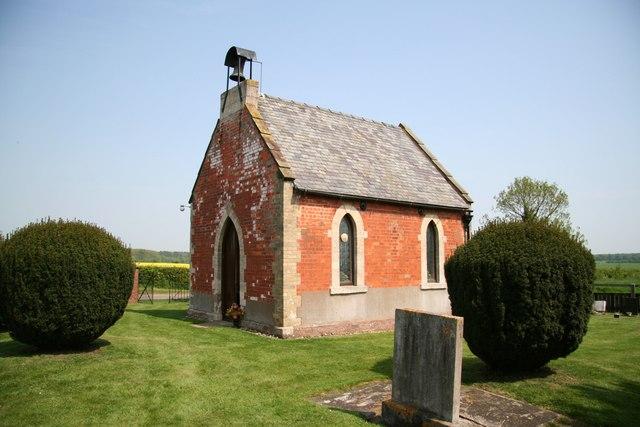St Andrew
Stainfield, Lincolnshire
Stainfield St Andrews celebrates the rich heritage of this beautiful Queen Anne church, built on the site of an early12th century Benedictine nunnery, now medieval parkland in the Lincolnshire Limewoods.

By 1816 a brick shed on the site had been converted for use as a mortuary chapel and when the graveyard was enlarged in 1871 it was replaced by the small brick building which we see today.
Apley, Lincolnshire
The medieval settlement of Apley was a hamlet established by the late 11th century. After the foundation of Stainfield Priory in the mid 12th century the settlement was granted to the nunnery and managed as a monastic manor. Documentary references to a priest at Apley occur from the early 13th century onwards.
The population of the settlement, which remained low throughout the medieval period, declined after the Dissolution when 'Apley Grange' was granted, with the rest of the Stainfield Priory estate, to Sir Robert Tyrwhitt, who enclosed large areas of land for sheep pasture. The remains of the medieval settlement of Apley and the surviving parts of its open fields are visible as earthworks with associated buried remains.
Only four marriages have been held in the church in living memory, the first featured on local TV in July 1992 and the latest was in February 2009.
The interior is kept in excellent condition, it has a small skeleton pulpit and a plain wooden lectern. The font, standing on a plain dark wooden plinth, is one of a small number of miniature replicas of the font of St Mary Magdalene, Oxford. Made in the late 19th century it has survived the years well apart from a cracked lid.
Stainfield, Lincolnshire
Stainfield St Andrews celebrates the rich heritage of this beautiful Queen Anne church, built on the site of an early12th century Benedictine nunnery, now medieval parkland in the Lincolnshire Limewoods.
Goltho, Lincolnshire
A Tudor chapel by a lost village.
Barlings, Lincolnshire
Mentioned in the Doomsday Book in 1086, St Edward the Confessor is situated on land formerly owned by Kolsveinn, Lord of Brattleby and tenant in chief of more than fifty manors in the county at that time.